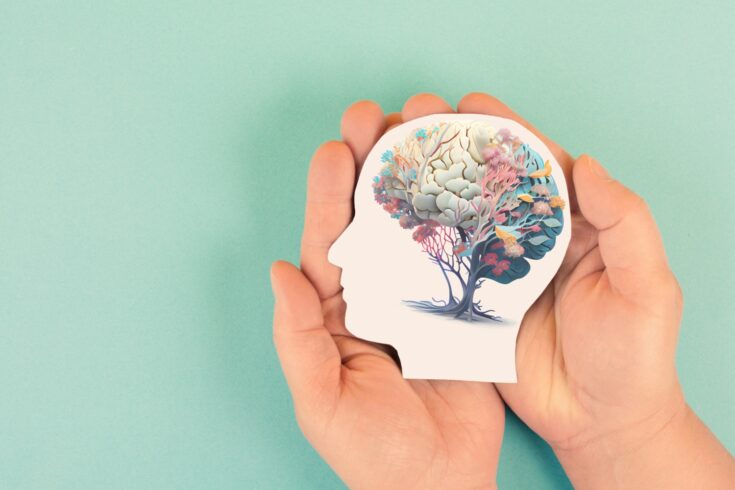My path into mental health research began with my grandmother’s stories. She was a psychiatric nurse at the Royal Cornhill Hospital in Aberdeen, and her descriptions of mental illness planted the first seeds of interest in my mind. Little did I know then how profoundly those stories would shape my career.
Years later, as a medical student at the same hospital, I saw firsthand the suffering caused by mental illness. I found it incredible that we knew so little about the causes of these conditions. This realisation sparked a journey that has led me to where I am today, at the forefront of psychiatric genetics and mental health research.
Director appointment
On 1 August 2024, I officially began my new role as Director of the UK Research and Innovation (UKRI) mental health research platform. This ambitious £22.5 million initiative comprises of six interconnected hubs:
- five research hubs, each focusing on different aspects of severe mental illness (SMI)
- a data science hub (DATAMIND) to facilitate data sharing and standardisation
- a coordinating centre to ensure seamless collaboration across the platform
The ‘securing better health, ageing and wellbeing’ theme supports the platform. It is one of five UKRI-wide initiatives aiming to harness the full power of the UK’s research and innovation system to tackle large-scale, complex challenges.
My vision
My vision for the platform is clear: I aim to foster a culture of collaboration where researchers, healthcare professionals, policymakers and individuals with lived experience work together to deliver research for those most severely affected by mental illness. This inclusive approach ensures that everyone feels part of this important community.
The platform’s structure aims to break down traditional methods in mental health research, fostering a more integrated, holistic approach. The DATAMIND hub will play a crucial role by facilitating data sharing and standardisation, enabling us to replicate findings and reuse data, thus accelerating the pace of discovery.
Our further hubs cover:
- complex emotions
- social health
- brain and genomics
- mental and physical health links relating to the immune (ImmunoMind) and metabolic systems (Metabolic Psychiatry)
The Metabolic Psychiatry hub launch
I’m enthusiastic to say that we are now underway with the Metabolic Psychiatry Hub. Launched in September 2024 alongside our coordinating centre at The University of Edinburgh, the hub explores the under-researched area of the connection between SMI and metabolic conditions such as obesity and diabetes.
Dr Iain Campbell, co-lead for the Metabolic Psychiatry hub at The University of Edinburgh said:
Metabolic Psychiatry arose from the lived experience of patients who have noted a significant connection between their metabolic health and mental health symptoms. As a researcher who lives with bipolar disorder, and who has lost both family and friends to mental illness, it is important to me to see an acceleration in the development of new and more effective treatments which address this interface of physical and mental health.
I know the hub is committed to putting lived experience at the centre of its research, because I first approached the team as a patient who wanted to understand the connections between metabolic and mental health, and this led to our first Metabolic Psychiatry pilot study. Through the lived experience advisory panel which will guide the hub, we re-affirm our core commitment to serving patients and their interests in our research.
I’m deeply grateful to The University of Edinburgh. Their commitment to this initiative is a testament to the potential impact of this new hub.
AI, industry and social factors
So, how does technology play a part? Interventions for mental illness may evolve into phone apps, new drugs or psychological treatments. However, the increasing role of artificial intelligence (AI) and digital therapies in mental health research offers new insights and solutions.
AI has been transforming how we process information on our phones for years. Its ability to provide novel viewpoints from large amounts of complex data can benefit mental health research and potentially advance the field.
Digital therapies are hopeful as they can adapt to the specific needs of the person taking part or be delivered to large numbers of people at low cost.
And what of industry? Many biological and psychological interventions are developed not by universities but by companies. We must find ways to work with industry that maintain public trust and confidence. My mental health hub colleagues (including people with lived experience) and I are committed to finding a way forward that improves outcomes for people with SMI.
Social factors associated with mental illness also have important implications for health and social policies, with potential broad impacts. It is vital that we work with policymakers, too, so that the social factors identified by the hubs, perhaps especially in our social health and complex emotions hubs, are put into action.
The challenges we face
Throughout my career, I’ve witnessed a complete transformation in how we study mental illness. In the early days, I most enjoyed analysing new data, discovering its insights and experiencing the thrill of seeing my work published.
Over time, the size of the studies I’ve been involved in has grown enormously. The number of researchers involved has increased nearly 100-fold, transforming psychiatric genetics.
However, mental health research faces significant challenges, including differences in risk factors, symptoms and treatment responses between people with the same diagnosis.
To address these challenges, our platform will focus on studying the social, psychological and biological mechanisms of SMIs. This multi-faceted approach recognises the complex nature of mental health conditions and aims to provide a more comprehensive understanding of their underlying causes.
My hopes for the future
Looking to the future, I’m particularly excited about the potential of blood-based biomarkers in mental health.
There’s building momentum around the potential of blood samples to objectively measure brain and body health by evaluating circulating small molecules. This approach could provide information on future risks of mental illness or guide treatment decisions, possibly revolutionising how we diagnose and treat mental health conditions. The work on biological markers was vital to the ImmunoMIND and brain and genomics hubs’ plans from the outset.
Some of my proudest moments now arise particularly from bringing researchers together across countries to address common questions in mental health. It is gratifying to see these collaborations take shape and to watch younger scientists embark on their independent projects.
My greatest hope is that I will look back on my career and see that the platform was the forerunner to greater collaboration, discovery, impact and the development of more effective mechanism-based treatments.
Find out more
Information on all six hubs will be available on the future Mental Health Platform website.



